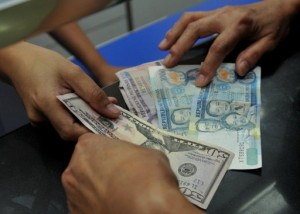A proposed law allowing foreigners to own 100 percent of Philippine telecommunications companies will bring needed overseas investments to the country but may cause “frustration” for operators perceived as national security threats.
Fitch Solutions Country Risk & Industry Research outlined the broad benefits of Senate Bill (SB) 2094, which seeks to amend the Public Service Act to lift the 40 percent foreign ownership limit in key sectors such as telecommunications and transport.
This will pave the way for more foreign capital inflows and cheaper internet access.
At the same time, it heightens worries about unwarranted foreign incursions into strategic segments.
Fitch Solutions highlighted the case of Dito Telecommunity, a new telco industry entrant that is 40 percent controlled by state-run China Telecom.
“Concerns largely surround unrestrained foreign access to critical infrastructure, with anxieties likely exacerbated by the recent escalation in tensions between China and Taiwan in the South China Sea,” Fitch Solutions said.
“China’s involvement in Dito sees it subject to substantial scrutiny over national security and the new legislation could therefore result in a considerable level of frustration for the Chinese-backed operator now that full foreign ownership will be permitted,” it added.
The Senate version of the proposed law addresses this issue by prohibiting foreign state-owned enterprises from investing in telecommunications companies and similarly-classified public services.
Meanwhile, SB 2094 will encourage foreign direct investments (FDI) in the country’s fixed-internet segment, supporting fiber broadband and cloud services.
“Encouraging FDI into the Filipino telecoms market is much-needed after years of underinvestment,” Fitch said.
To date, PLDT Inc. and Globe Telecom have significantly upped spending on fiber internet services.
Fitch Solutions said greater coverage will eventually bring down internet costs, leading to greater affordability.
Fixed broadband penetration remained low at 4.2 percent at the end of 2020, making the Philippines one of the smaller broadband markets in the region.
“We expect that greater investment in terrestrial fiber networks will improve the fixed broadband penetration rate, though we do not anticipate a substantial increase given the appeal of FWA (fixed wireless access),” Fitch Solutions said.


